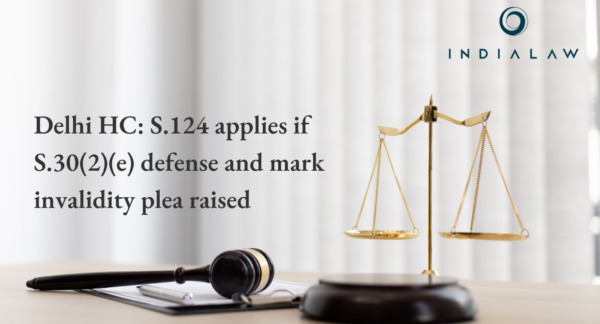Lal Babu Priyadarshi v. Amritpal Singh – Trademark over name of religious books

By Shalini Singh and J. Mandakini
Introduction
In the case of Lal Babu Priyadarshi vs. Amritpal Singh[1], the Supreme Court has considered the question of registration of names of holy books as trademarks.
Facts
Lal Babu Priyadarshi, trading under the name M/s. Om Perfumery made an application to the Registrar of Trade Marks to register trademark by the name ‘RAMAYAN’ (“Impugned Mark”) along with the image of a crown. The impugned mark was to be registered in respect of incense sticks and perfumeries. The said application was opposed by another trader Amritpal Singh trading under the name M/s. Badshah Industries, claiming that the Impugned Mark, is name of a religious book, and hence it could not become the subject matter of monopoly for an individual.
The Assistant Registrar of Trade Marks dismissed the said opposition, stating that the Impugned Mark was capable of distinguishing the goods and was also not included in the list of marks not registrable under the Trade Marks Act, 1999.
Aggrieved by the said order, Amritpal Singh preferred an appeal before the Intellectual Property Appellate Board, which set aside the order of Assistant Registrar of Trade Marks. Aggrieved by the order of the Intellectual Property Appellate Board, Lal Babu Priyadarshi preferred this special leave petition before the Supreme Court.
Decision of the Court
Lal Babu Priyadarshi contended that the goods under the impugned mark had been extensively advertised by him, and consequently the carton in which the products were being sold had been identified with the Impugned Mark. Use of same or similar trademark or carton by any other person would cause confusion and deception. He contended that the use of names of Hindu deities as trademarks was common practice, and denied that such usage offended any religious feelings.
Amritpal Singh contended that the Impugned Mark was devoid of any distinctive character as it was not capable of distinguishing the product of one person from that of another. He also contended that the Impugned Mark was being used by more than 20 traders in the city itself and hence it had become public juris and common in trade.
The Court relied on the Amritpal Singh’s contention that the Impugned Mark did not have any distinctive character as it was being used by more than 20 traders in the city.
Pursuant to this case, the Court has held that the names of holy books such as Quran, Bible, Guru Granth Sahib, Ramayan etc. cannot be registered as trademarks.
[1] Civil Appeal No. 2138 / 2006




